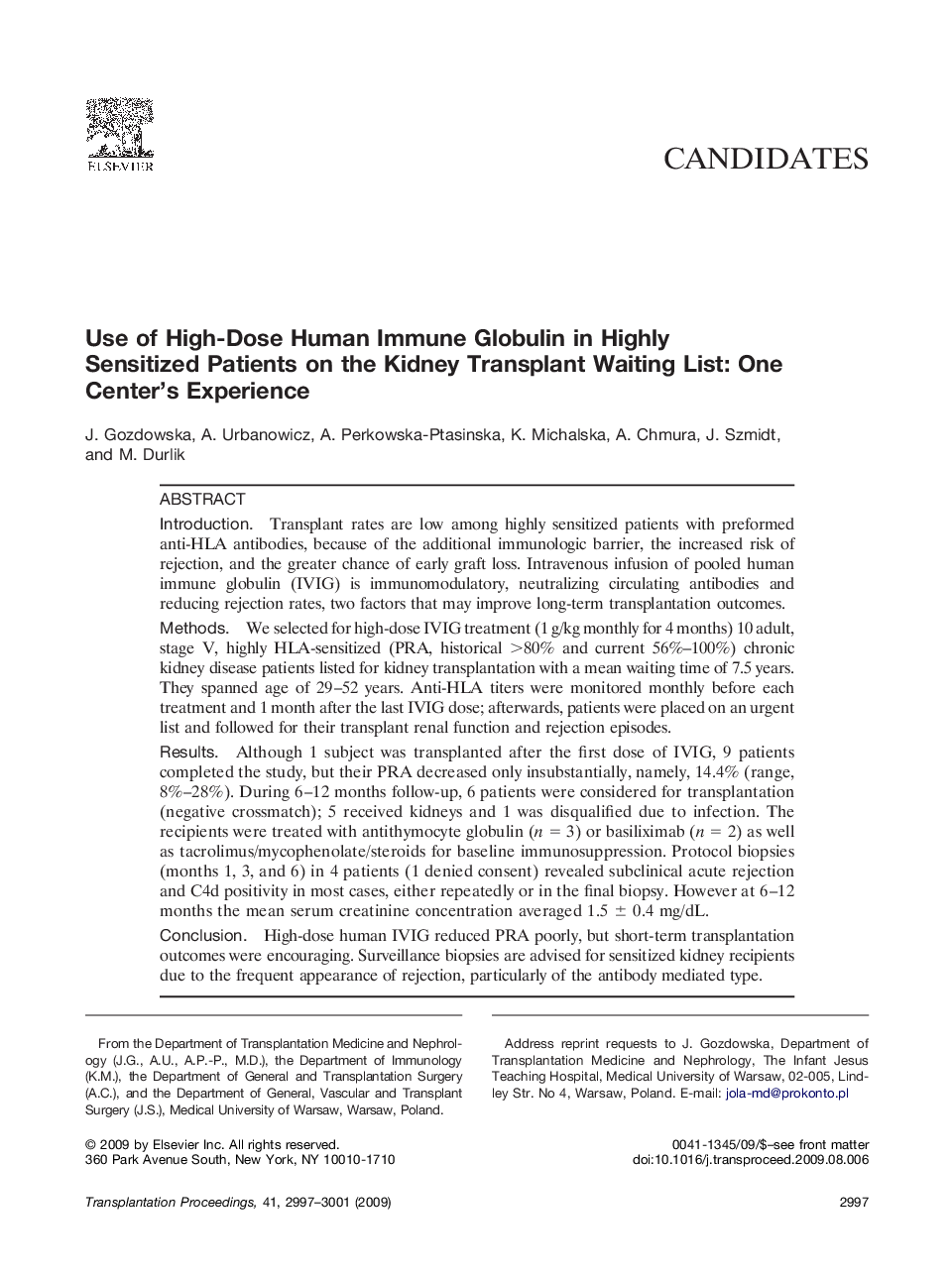| Article ID | Journal | Published Year | Pages | File Type |
|---|---|---|---|---|
| 4258972 | Transplantation Proceedings | 2009 | 5 Pages |
IntroductionTransplant rates are low among highly sensitized patients with preformed anti-HLA antibodies, because of the additional immunologic barrier, the increased risk of rejection, and the greater chance of early graft loss. Intravenous infusion of pooled human immune globulin (IVIG) is immunomodulatory, neutralizing circulating antibodies and reducing rejection rates, two factors that may improve long-term transplantation outcomes.MethodsWe selected for high-dose IVIG treatment (1 g/kg monthly for 4 months) 10 adult, stage V, highly HLA-sensitized (PRA, historical >80% and current 56%–100%) chronic kidney disease patients listed for kidney transplantation with a mean waiting time of 7.5 years. They spanned age of 29–52 years. Anti-HLA titers were monitored monthly before each treatment and 1 month after the last IVIG dose; afterwards, patients were placed on an urgent list and followed for their transplant renal function and rejection episodes.ResultsAlthough 1 subject was transplanted after the first dose of IVIG, 9 patients completed the study, but their PRA decreased only insubstantially, namely, 14.4% (range, 8%–28%). During 6–12 months follow-up, 6 patients were considered for transplantation (negative crossmatch); 5 received kidneys and 1 was disqualified due to infection. The recipients were treated with antithymocyte globulin (n = 3) or basiliximab (n = 2) as well as tacrolimus/mycophenolate/steroids for baseline immunosuppression. Protocol biopsies (months 1, 3, and 6) in 4 patients (1 denied consent) revealed subclinical acute rejection and C4d positivity in most cases, either repeatedly or in the final biopsy. However at 6–12 months the mean serum creatinine concentration averaged 1.5 ± 0.4 mg/dL.ConclusionHigh-dose human IVIG reduced PRA poorly, but short-term transplantation outcomes were encouraging. Surveillance biopsies are advised for sensitized kidney recipients due to the frequent appearance of rejection, particularly of the antibody mediated type.
